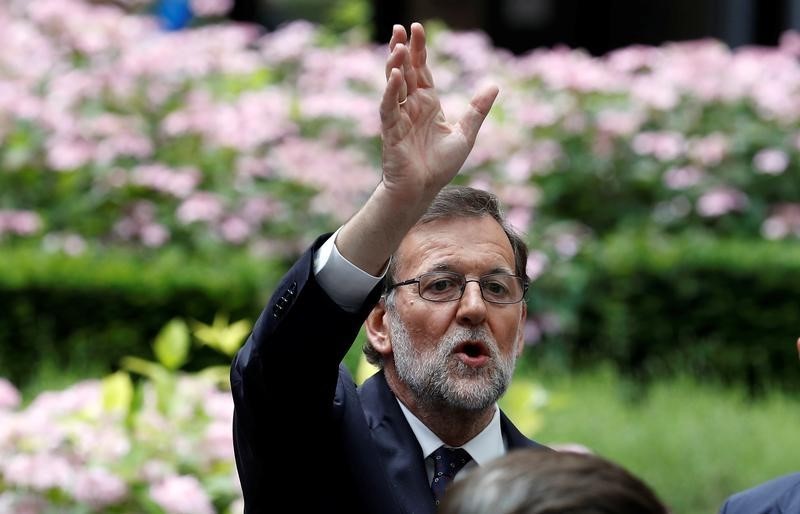By Angus Berwick and Maria Vega Paul
MADRID (Reuters) – Spain’s Socialist party will oppose a government led by acting Prime Minister Mariano Rajoy, whose party won the most votes in last month’s election, increasing the odds that an almost seven-month political stalemate will trundle on. Spanish politics has been frozen since a national election last December stripped Rajoy’s conservative People’s Party (PP) of its majority and forced parties to negotiate — so far without success — over forming a coalition government. The PP managed to increase its number of votes in a repeat election on June 26 but again fell far short of a parliamentary majority, meaning it needs support from its long-time foe, the second-placed Socialists, or a cluster of smaller parties. But Socialist leader Pedro Sanchez, speaking publicly for the first time since the election, said on Saturday that his party would neither vote in favor of Rajoy in a confidence vote nor abstain to enable a PP-led government. “He should outline the policies that will allow him to gain support among his natural allies, of which the Socialists are not one, and that he does not wait for the others to solve his problems,” Sanchez told a party conference. With the Socialists out of contention, Rajoy must convince fourth-placed centrists Ciudadanos along with two small regional parties to back him or abstain.
If negotiations fail again, Spain could face a third round of elections just as its economic recovery from a deep recession faces obstacles such as the uncertainty triggered by Britain’s vote to leave the EU, and mounting pressure in Brussels to cut its deficit. The European Commission said on Thursday it would begin disciplinary procedures against Spain, along with Portugal, for excessive deficits in 2014 and 2015. It is likely that Spain will again miss its 2016 deficit target of 3.7 percent. “It would be foolish to hold new elections,” Rajoy told a news conference on Saturday after Sanchez’s speech. “I would like a government to form quickly so that we don’t waste the whole summer discussing.” Rajoy’s best hope for reaching the 176 seats needed to form a majority are newcomers Ciudadanos, seen as a more natural ally of the PP. But they have remained vague about supporting Rajoy, only saying that third elections would be unacceptable and a solution had to be found. The PP won 137 seats in the election and Ciudadanos’ support would bring it to 169. A party from the Canary islands could add one seat, and a Basque nationalist party could add five more, although it said this week it would oppose Rajoy in a vote. (Story refiles to fix typo in seventh paragraph.)
(Editing by Catherine Evans)
Spain heading for more deadlock as Socialists reject backing PM Rajoy

By Angus Berwick and Maria Vega Paul

















